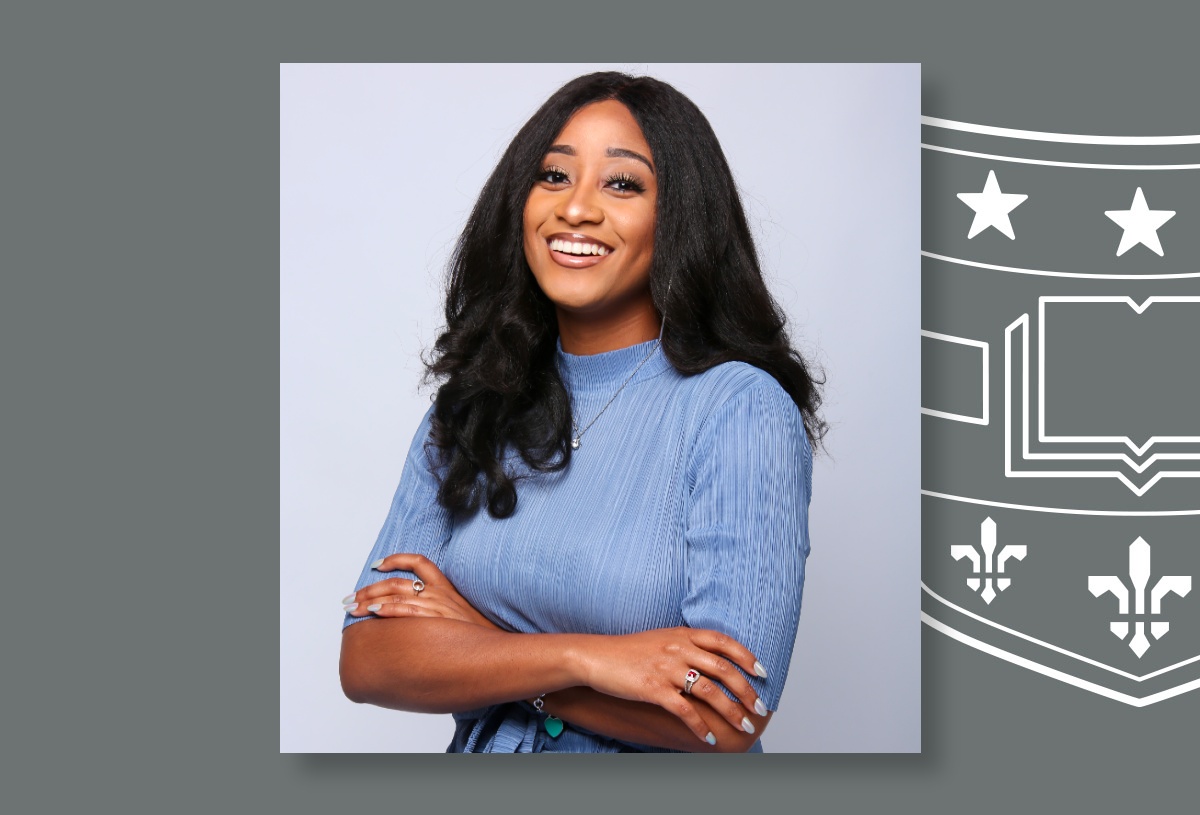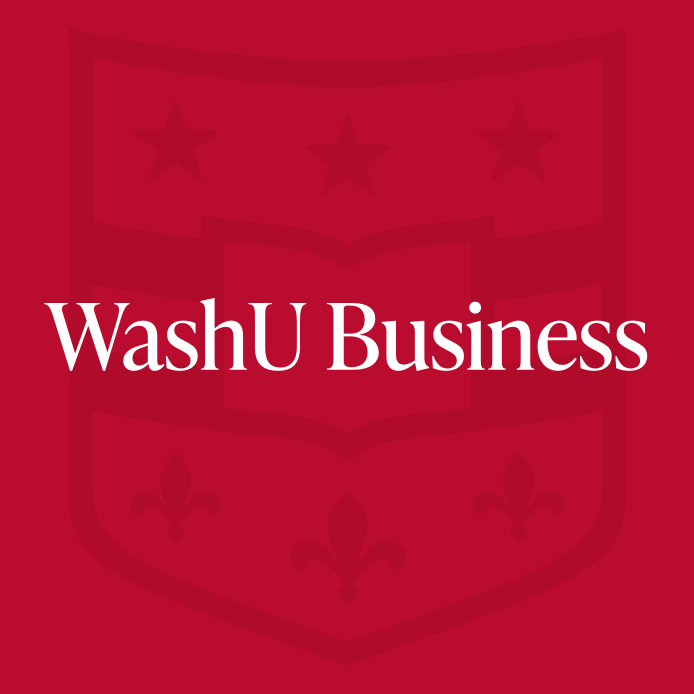Recent Olin MBA finds herself sought out as an informal WashU ambassador
- September 14, 2022
- By WashU Olin Business School
- 4 minute read

Next in a series of Olin Blog features on recent alumni.
Destiny Davis, MSW/MBA ’20, works for a consulting firm in Chicago that helps businesses build their strategy for philanthropic giving and support. She finds she often hears from prospective WashU students through LinkedIn, and thus serves as an informal ambassador for the university and the business school.
What are you doing for work now, and how did your Olin education impact your career?
I work for a consulting company called Mission Measurement, based out of Chicago, where I help corporations and governments build effective strategies for their philanthropic portfolios and work to measure the impact of their philanthropic dollars through outcomes measurement.
Olin provided me the opportunity to understand how corporations operate and make strategic decisions. Working within social impact helps me to understand how consumer demand is impacting a company’s intentional commitment to societal change. Whether that be allocating resources to organizations/local charities or procuring their products with sustainable materials, the idea of corporate social responsibility and ESG [Environmental, Social and Governance] has become a bigger priority within the last few years in business.
As our world continues to shift, I believe the demand for intentional corporate social responsibility practices will be more fundamental.
What Olin course, “defining moment” or faculty influenced your life most, and why?
A big impactful “defining moment” at Olin was my experience working with the Center for Experiential Learning and helping a local entrepreneur, Kacie Starr Long, build her social enterprise, Sew Hope.
The heart of Sew Hope was to create a space for women to learn how to sew, quilt and craft, which, as a result, would give the opportunity for high-end dresses and faith-based goods to be sold. It was a great opportunity to bridge my heart for social impact and business together by helping a St. Louis native think about her overall target audience, channels for distribution and business structure that would inevitably be sustainable in the long term.
As a result, I’m happy to share to Kacie Starr Long officially launched her Sew Hope Community Sewing Room in January 2022.
How do you stay engaged with Olin or your Olin classmates and friends?
Many of my Olin classmates immediately became family while at Olin; therefore, we try our best to stay connected and visit each other when we can. Whether I’m going back home to Dallas or here in Chicago, I try and make it a priority to spend time with my Olin family with dinner or happy hour.
Outside of that, many prospective students reach out to me via LinkedIn, and I am always willing to share about my experience at Olin and resources that I found helpful while attending. Lastly, being a member of the Consortium for Graduate Study in Management keeps me connected to individuals that I met while at Olin from other schools within the CGSM network.
Why is business education important?
Business education is a priority because it helps to give perspective and understanding around priorities of stakeholders and how business decisions impact our world and economy.
Whether you are a small business owner or an MBA looking to climb the corporate ladder, the basic foundational principles such as marketing/sales generation, accounting or building out the best strategy can help bring success no matter the goal.
What advice would you give current Olin students?
I would tell them not to be afraid to set their own path. I started at Olin knowing that I would not be taking the traditional route of an MBA given my background in social work. I was dedicated to tailoring my experience at Olin to fit my needs as a student and actively sought out opportunities that spoke to my desired path.
Likewise, two years in business school can go by very quickly; therefore, immerse yourself in the experience and make it all you can. Get active within the Center for Experiential Learning, build intentional relationships with your classmates, join a club and be willing to pioneer opportunities that you may not see at Olin.
How has the pandemic influenced your thinking about doing business locally or globally—or your career?
The rise of COVID-19 has shifted my social impact perspective around health equity and the lack thereof—both locally and globally. In my everyday work, I get a glimpse into how corporate funders are thinking through their philanthropy and overall impact.
Many have intentionally responded to the crisis, but others have not, and it makes me continually think of the role that corporations have in driving societal change. We know that social responsibility is no longer optional, given that consumers are more willing to buy from a company that is having some type of intentional societal impact, whether that be internally or externally.
However, the pandemic really tested companies’ commitment to that corporate social responsibility. Many individuals lost their jobs and communities were disproportionately affected during the pandemic, and it was an opportunity for companies to make good on their social impact marketing and commitments.
As a result, I believe there are ongoing continuous ways for companies and foundations to respond and be creative in helping their stakeholders through this ongoing crisis.
Media inquiries
For assistance with media inquiries and to find faculty experts, please contact Washington University Marketing & Communications.
Monday–Friday, 8:30 to 5 p.m.
Sara Savat
Senior News Director, Business and Social Sciences
